Guns
This is part four of a series that examines President John Kennedy’s liberal beliefs and breaks down the misrepresentations of JFK by Larry Elder. Elder presented a very distorted version of JFK in a 2017 online piece, “John F. Kennedy: What Would He Think of His Party?” that both reflects and informs the opinions of many people on the political right who wish to pretend that Kennedy would be a Republican or a conservative, if he were alive today. If you have not read Part 1 of this series, I advise you begin there.
In Part 3, I discussed Elder’s misrepresentations of Racial Quotas, Tax Cuts, and Foreign Enemies. Here we will tackle the right’s obsession with an ahistorical version of the Second Amendment and their continued need to force Kennedy’s actual legacy into a black box, where it will never be heard from again.
Elder begins with:
On the Second Amendment, this lifetime member of the NRA believed it conferred an individual right to keep and bear arms. In 1961, Kennedy said: “Today we need a nation of minutemen: citizens who are not only prepared to take up arms, but citizens who regard the preservation of freedom as a basic purpose of their daily life and who are willing to consciously work and sacrifice for that freedom. The cause of liberty, the cause of America, cannot succeed with any lesser effort.”
There are a few things to unpack here, starting with the claim that JFK was a, “lifetime member of the NRA.” John Kennedy never asked to join the NRA or paid any money to the organization. He was given a lifetime membership after making the speech that Elder took that quote from, but that quote is also misleading.
JFK’s FDR Birthday Speech
Let’s begin with the speech, which President Kennedy gave on January 29, 1961, just nine days into his presidency. As reported in the New York Times the next day, this short address — “Commemorative Message on Roosevelt Day” — was meant for a series of upcoming Roosevelt Day dinners being held by Americans for Democratic Action. At the time, FDR was still widely admired by tens of millions, including JFK, and certainly seen as the greatest Democrat in living memory. While his birthday was not an official, government holiday, it was celebrated by people who wanted to continue to use the power of government to make a better country and a better world. JFK used this opportunity to remind people about the past success of government action, as he saw it, and the future he hoped to lead America to:
Twenty-eight years ago Franklin Roosevelt assumed the leadership of a stricken and demoralized nation. Poverty, distress and economic stagnation blanketed the land. But it was not long before the great creative energies of the New Deal had lifted America from its despair and set us on the path to new heights of prosperity, power and greatness.
Today America is the richest nation in the history of the world. Our power and influence extend around the globe. Yet the challenges and dangers which confront us are even more awesome and difficult than those that faced Roosevelt. And we too will need to summon all the energies of our people and the capacities of our leaders if America is to remain a great and free nation — if we are to master the opportunities of the New Frontier.
This vision is very different from people on the right today, like Elder, who are misappropriating Kennedy’s image without any of his actual character or substance. But it is through the lens of Kennedy’s vision that we must look if we are to understand his words. Here is the passage Elder cites, with a bit more of the context:
In my own native state of Massachusetts, the battle for American freedom was begun by the thousands of farmers and tradesmen who made up the Minute Men — citizens who were ready to defend their liberty at a moment’s notice. Today we need a nation of minute men; citizens who are not only prepared to take up arms, but citizens who regard the preservation of freedom as a basic purpose of their daily life and who are willing to consciously work and sacrifice for that freedom. The cause of liberty, the cause of America, cannot succeed with any lesser effort.
Regardless of what JFK’s views were on the Second Amendment, or what it did or did not, “confer” on individuals, the more basic and important fact at hand is that this speech was not about the, “right to keep and bear arms.” Like Elder’s other arguments, and so many arguments from figures on the right and left, there is no attempt to understand the past here; only an effort to exploit it.
President Kennedy was invoking an iconic symbol of America’s fight for independence, the Minute Men, to stir Americans of his time to action. He always acknowledged the dangers in the world, most notably the fear of Russian-led Communism that dominated his time, and he believed that we needed to be prepared to take up arms, but this was not the focus of his remarks. Nor was he taking any position on gun ownership, whatsoever. He was calling upon his fellow citizens too, “do for their country,” as he had in his inaugural address. To work and sacrifice in a wide variety of ways that went far beyond preparedness for war. And he most certainly did not say that we need, “farmers and tradesmen,” or any private citizens to maintain an arsenal in their homes.
The National Rifle Association, circa 1961
On March 7, the NRA’s Executive Vice President, Franklin L. Orth, sent President Kennedy a letter that began:
In a recent address you referred to the need of a nation of Minutemen. In the category of “bearing arms” the Minutemen heritage is preserved today in its basic form by the members of the National Rifle Association of America. Throughout its long history of almost a hundred years, this Association has been dedicated to the promotion of the social welfare and public safety, law and order, and the national defense; and to the education and training of citizens of good repute in the safe and efficient handling of small arms. Through our 400,000 individual members, 10,000 chartered clubs and close affiliation with the Armed Forces, we encourage rifle and pistol shooting and conduct competitive contests to further these objectives.
The letter concluded with, “We would be highly honored if you would accept a Life Membership…” Consider what kind of organization JFK was being asked to accept an honorary membership from. One that was not obsessed with stockpiling weapons for a theoretical fight with the government, sometime in the future, or thoughtlessly putting gun ownership above all other rights and responsibilities. This was a group that cared about, “the social welfare and public safety, law and order, and the national defense.” And who wanted, “citizens of good repute,” to be educated and trained in the use of, “small arms.”
Notice also what is not here. There are no declarations of Second Amendment protections, let alone any suggestion that these protections constituted an individual right to own weapons of war. Instead, Orth touted the NRA’s efforts to increase, “the knowledge of young Americans in these important skills [competitive shooting and hunting],” as, “a tremendous asset in our arsenal of democracy and represent a strength of citizen being.” JFK, like any other American who lived through the Second World War, would have immediately associated the phrase, “Arsenal of Democracy,” with FDR, who used it to galvanize support for the United Kingdom, as they stood alone against the Nazis, nearly a year before Pearl Harbor brought the U.S. into the battle. Whatever Orth’s political affiliation may have been, he was as least dropping a hint that he was a FDR man and a liberal Democrat, like President Kennedy.
JFK’s reply was dated March 20:
On the occasion of Patriots Day, I wish to offer my congratulation and best wishes to the National Rifle Association of America which over the past years has done credit to our country by the outstanding achievements of its members in the art of shooting.
Through competitive matches and sports in coordination with the National Board for the Promotion of Rifle Practice, the Association fills an important role in our national defense effort, and fosters in an active and meaningful fashion the spirit of the Minutemen.
He closed by saying he was, “pleased to accept Life Membership,” and he wished them continued success. Again, what was Kennedy supporting here? What did he understand the NRA to be? It had nothing to do with an individual right to own anything and everything you can get your hands on; it was all about making better, more responsible shooters, and better citizens. It was about duty and service, with some room for individual pride in member’s personal accomplishments.
The, “Patriots Day,” he was referring to is a commemoration of the first battles of the American Revolution, at Lexington and Concord. It has never been all the big nationwide, but it has long been celebrated in Kennedy’s home state of Massachusetts. Today, like so many holidays, it has been shifted to a Monday — the third Monday in April — but in 1961 it was still celebrated on a set date, April 19. April 19 is the date on the next, and final NRA letter that the White House received. This one was from Secretary F. C. Danial, who also enclosed JFK’s membership card and further reiterated what the organization stood for, at the time:
The purposes and objects of the Association are to educate the youth of the nation in good citizenship, in safe and proper gun handling and in marksmanship; to promote shooting as a sport and for the purpose of qualifying as finished marksmen those individuals who may be called upon to defend our country or its citizens. Through a program of activities and services we seek to create a public sentiment for the encouragement of rifle and pistol practice for all these purposes. Toward these objectives we cooperate with other patriotic organizations whose activities, like ours, are in the public interest.
How much does this align with the NRA of today? On their website, the NRA gives a general overview of the organization’s history:
Dismayed by the lack of marksmanship shown by their troops, Union veterans Col. William C. Church and Gen. George Wingate formed the National Rifle Association in 1871. The primary goal of the association would be to “promote and encourage rifle shooting on a scientific basis.” Since then, the NRA has been the premier firearms education organization in the world. From training the next generation of gun owners to leading legislative and political efforts to defend the Second Amendment, the NRA is at the forefront of preserving your freedom.
While retaining the basic facts about who founded the NRA, and upholding their long commitment to firearms education, the focus and tone here has clearly changed from JFK’s time, and most of the NRA’s past. They are all about, “your freedom,” which sounds good to must people, but freedom does not work well when it’s all about “me” and “my rights” and there is no sense of public duty or any willingness to, “consciously work and sacrifice” — to, “Ask not what your country can do for you. Ask what you can do for your country.” — or any respect of the governmental institutions and employees who keep our republic running on a daily basis.
When you click on the longer history that the current NRA offers and search the page, you find no mention of the words, “social welfare,” “public safety,” “public interest,” “good citizenship,” or even just, “citizenship.” The story they now tell, ignores the creation of the National Board for the Promotion of Rifle Practice, which Congress established in 1903, and which JFK mentioned in his letter to NRA VP Orth. Perhaps this is because they don’t want to be seen as cooperating with the government for most of their history. The NRA’s current “history” also ignores all the times that the NRA supported or compromised on gun regulations and the outright banning of weapons of war, starting with surplus World War I machine guns.
Most importantly, the NRA’s current story ignores The 1977 “Cincinnati Revolt.” This was the crucial turning point in NRA History. This is the point at which a group of hardliners took control of the organization and led it in a new, aggressive and uncompromising direction. This event significantly shaped the NRA’s modern identity and stripped away many the things JFK and the leadership of the NRA in his time understood to be essential elements of what the NRA was meant to be.
Memberships are Cheap
The John F. Kennedy Presidential Library and Museum has the two NRA letters to JFK, as well as his response, NRA card, and some NRA literature in a folder marked, “Memberships, December 1960-April 1961.” But the NRA material is not alone in there. Just within that short period of time, where JFK went from being the President Elect to presiding over the Bay of Pigs debacle, Kennedy was made a honorary member of the Variety Clubs International, a Perpetual Member of the Pontifical Association of the Holy Childhood, an Honorary Member of the Deepdale Golf Club in Palm Springs, FL, an honorary membership in The Frontiers of America, Inc., an Honorary Membership in The New-York Historical Society, and The Boston Kiwanis Club made him a Life Member of The Cane Club, with, “an attractive walking cane,” according to the President’s brother, Edward “Ted or Teddy” Kennedy, who attended an event to receive JFK’s cane. Additionally, JFK was enrolled, for a term of four years, as a member of the Jesuit Seminary Aid Association, and he was sent a, “Gold pass to the President and his family from the Imperial Potentate of Almas Temple in Washington to attend Shrine Circus.” The one organization for which he was an actual dues paying member, the National Press Club, also sent him a letter during that time period, stating that the Board of Governors voted to designate his membership as, “non-active,” at this time.
So, how seriously did President Kennedy take his NRA Membership? One thing we do know is that his Member Record Card still looks like it was never touched and the signature line is still blank. But we cannot say if the NRA mattered to him any more than the other memberships he was given at relatively the same time. As a Catholic, his Jesuit Seminary membership, which came with the promise of regular prayers for all members, may have been more special to his heart, or he may have been largely unaware of these memberships and have no interest in any of them. Who can say?
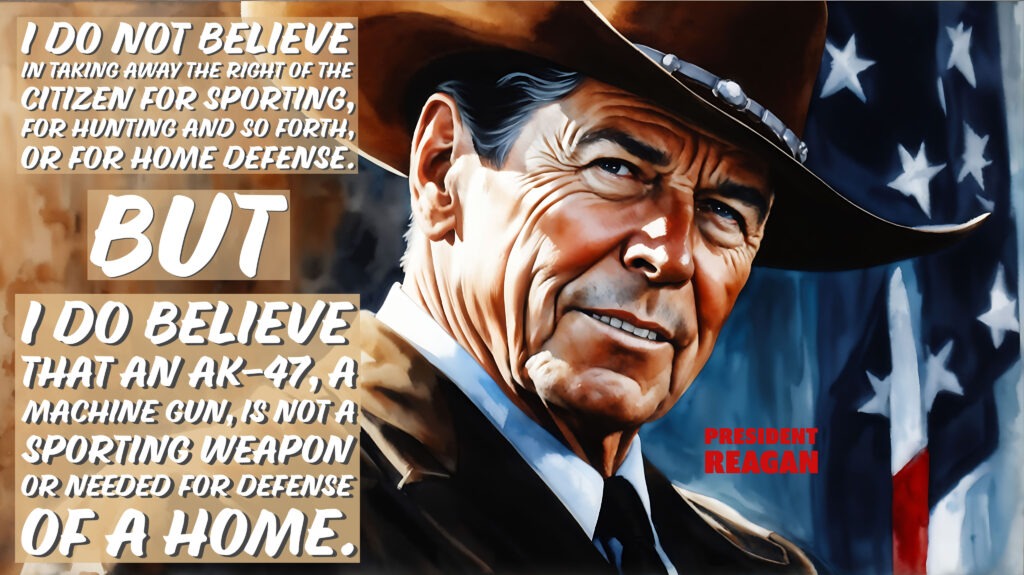
John Kennedy’s Views were Closer to Republicans Back Then, Not Now
We can find a bit more insight on JFK’s thoughts on the subject in a brief answer he gave to Guns magazine in April 1960, in which he framed the Second Amendment as more of a symbolic statement about the civilian nature of our republic than a legal necessity or an, “Out of my cold dead hands,” absolute and unquestionable right:
By CALLING ATTENTION to “a well regulated militia,” the “security” of the nation, and the right of each citizen “to keep and bear arms,” our founding fathers recognized the essentially civilian nature of our economy. Although it is extremely unlikely that the fears of governmental tyranny which gave rise to the Second Amendment will ever be a major danger to our nation, the Amendment still remains an important declaration of our basic civilian-military relationships, in which every citizen must be ready to participate in the defense of his country. For that reason I believe the Second Amendment will always be important.
There is no reason I can find to believe JFK was anti-guns and it is reasonable to think that Kennedy had no problem with gun ownership, in general. He certainly fired weapons during the Second World War and other times, like when Vice-President Lyndon Johnson got him and Bobby to go deer hunting on LBJ’s ranch. But President Kennedy’s conception of the “right to bear arms” and the desirability of promoting shooting was all tied into National Defense from foreign dangers, and he coupled these beliefs with the value of sacrificing and working for the country; for your fellow citizens and future citizens. The public interest, not just your individual interests were always an important factor in his views.
This was a common understanding at the time, across the political spectrum. Even Congressman Clare E. Hoffman, a Republican from Michigan, who was quoted in the same issue of Guns with an answer that focused on home protection, was still far more measured about what gun “rights” actually meant than today’s Second Amendment activists and fanatics:
GUNS BEING “DANGEROUS weapons,” some restraint is necessary in connection with their possession and use.
Lawlessness being on the increase, especially in cities like Washington, protection of the home might be more effective if the owner or occupant was permitted to retain one, being, of course, instructed in the custody and use thereof, especially as the professional criminal is always able to have one.
Like every other right recognized by the Constitution, the right of the people to keep and bear arms is not absolute. It must be circumscribed by legislation which will protect the public.
And Hoffman was on the extremist fringe at the time, believing conspiratorial stories, like the claim that the U.S. Health Service had been, “heavily infiltrated by Russian-born doctors,” who were putting out dangerous vaccines and trying to socialize our medical system.
Yes, some of Hoffman’s talking points and assumptions sound the same as many people on the right today — the fear of lawlessness, particularly in cities with large African American populations is certainly there — but some of Hoffman’s views, like the need for mandatory instruction on how to use a gun, if you want to own one, is the kind of position that could get him denounced as an anti-Second Amendment, Woke, Social Justice Warrior (SJW) today.
Ronald Reagan would also fall into this general camp, with John Kennedy and most Americans, who have generally supported gun control but have no desire to take away their neighbor’s guns, or have their own guns taken away. This was true when Reagan, as Governor of California, signed the Mulford Act ing 1967, which prohibited the public carrying of loaded firearms without a permit. This continued to be true when, as President, he signed the Firearm Owners’ Protection Act (FOPA) of 1986, which sought to reduce the regulatory burden on gun owners and sellers, overall, but also imposed some new regulations and closed the sale of any new machine guns among the general public. And this remained true in Reagans post-White House years. In fact, the very first speech he gave after leaving office was at the University of Southern California in February 1989, in the wake of a mass shooting at Cleveland Elementary School in Stockton, California, the month before. Reagan made clear how he saw things:
I do not believe in taking away the right of the citizen for sporting, for hunting and so forth, or for home defense. But I do believe that an AK-47, a machine gun, is not a sporting weapon or needed for defense of a home.
And, before he removed himself completely from public life, Reagan sent a letter to Congress in 1994 supporting the effort to ban assault weapons (like NAFTA, the assault weapon ban is something many on the right like to pin on President Clinton alone, completely ignoring President Reagan’s key role).
This is a matter of vital importance to the public safety… While we recognize that assault-weapon legislation will not stop all assault-weapon crime, statistics prove that we can dry up the supply of these guns, making them less accessible to criminals.
Without Reagan’s support, the assault weapons ban likely would have failed, because the NRA actively apposed it. But as Reagan and other, older political figures, both Democrats and Republicans, passed on, the power of the NRA to influence new legislation and stop any renewal of the assault weapons ban became the norm. All this is lost is Larry Elder’s simplistic and misleading soundbite version of history, which more than suggests that President John Kennedy was a full-throated supporter of the NRA and nothing has changed in the thinking of the NRA since JFK’s time.
Any fair assessment of the facts shows that Elder is not presenting history or serving in anyway to educate the public. Whatever positive feelings President Kennedy had about gun ownership, his thinking on the matter was not in line with today’s NRA. Yet it is to Elder, and figure like him, that so many look; not for the truth, which they say they want, but for someone to tell them, “you’re correct and everyone else is wrong.” Elder presents the flimsiest of evidence on guns, as he does on all his points, and twists it to point away from reality. These are not subtle, opinion-bases, or debatable things. These a clear misrepresentations on his part to present President John Kennedy as something he was not and would not be, where he alive today. JFK was not a Republican, or a conservative, as he understood these things, let alone what they have turned into. And he was not an active member of the historically more moderate NRA, let alone todays NRA, with its, “out of my cold, dead hands,” attitude to any and all gun control efforts.

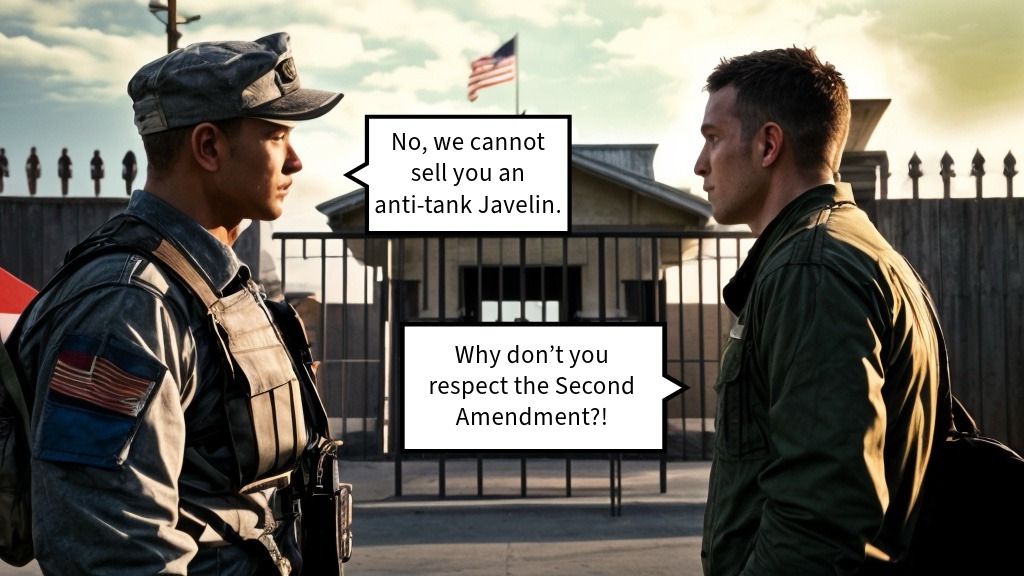
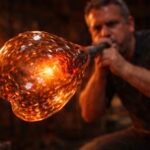
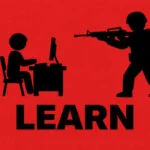

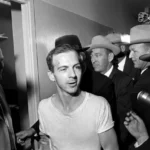
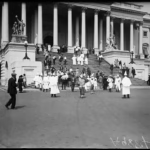
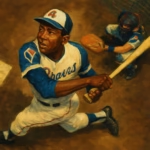

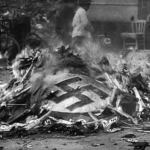
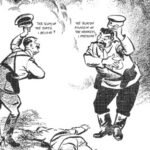
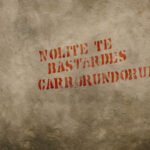
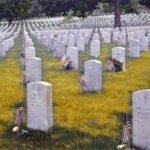
Leave a Reply